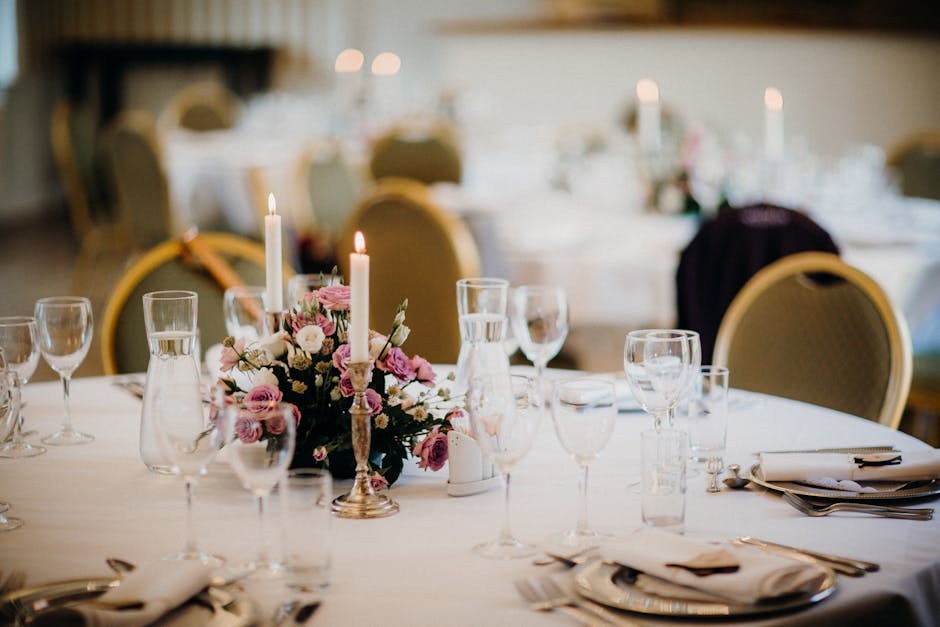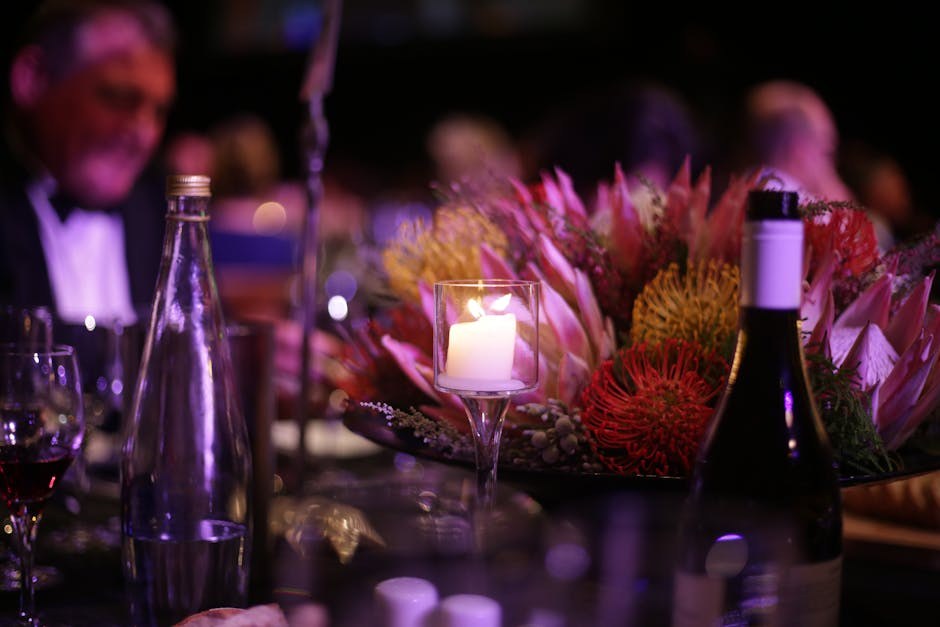At first glance, online dating looks like a bright doorway – a quick profile, a decent photo, and the promise of new conversations just a tap away. Then the lights dim. Messages stall, photos feel suspiciously perfect, and the tone of chat swings from charming to chilling in the time it takes to press send. What seemed easy becomes a maze, and the maze starts to feel like a movie you would rather watch than live through. This is the uneasy truth of online dating: the same tools that connect us also distort us, and the gap between the two creates tension worthy of a jump scare.
The Allure – and the Trap – of the Perfect Self
Profiles are performances. In online dating, people have time to rehearse – to polish the “about me” line until it sparkles, to crop pictures at clever angles, to adjust every sentence so it lands with confidence. None of this is inherently deceitful, yet the result can be theatrical rather than truthful. The person who seems dashing in chat may speak haltingly in person; the witty banter that pinged back in seconds may fade to awkward pauses across a table. Online dating rewards curation, so what you meet on your screen is often a highlight reel, not the whole film.
That curation stretches beyond words. Lighting is its own magic trick – a soft window glow here, a grainy filter there – and the subtle alchemy of posing can turn everyday snapshots into poster stills. In online dating, we learn which images attract replies and we repeat them, not to mislead so much as to survive the competition. The tension comes later, when reality – three dimensions, natural light, and unedited laughter – walks into the room and the contrast snaps into focus.

When the Photo and the Person Don’t Match
Expectations run the show long before you step into the café. If your mind has cast the lead based on five photos, meeting the actual person can feel like a recasting mid-scene. Perhaps the height guess was off, or the smile you imagined turns out quieter in person. Sometimes the difference feels minor; other times it feels like a twist you didn’t sign up for. Online dating amplifies this because the slideshow is the first promise – and once a promise lodges in the imagination, breaking it lands hard.
What truly stings is not that people age, bloat after a salty dinner, or have a different haircut – it’s that the profile suggested one picture, and reality provided another. That mismatch can feel like a bait-and-switch even when the intention was simply optimism. In online dating, hope edits ruthlessly – and hope rarely writes the most reliable captions.
Respect Slips When the Screen Feels Like Armor
The internet grants people the safety of distance – and sometimes they use that distance unkindly. Ghosting, nagging, or barbed messages land with a thud in your inbox, and the anonymity of online dating can magnify the audacity. A pleasant exchange can turn venomous the moment a boundary is asserted. The person who seemed relaxed becomes demanding; the friendly tone fractures into pressure or insults. The mask wasn’t a face – it was merely a handle.

This is the paradox: courtesy costs nothing, yet some users treat courtesy like a luxury. They refresh, track reads, and treat a delayed response as a slight. When online dating becomes a scoreboard – message sent, message seen, message ignored – dignity gets crowded out by entitlement. The result is not just unpleasant; it’s corrosive.
Uneven Odds Create Uneven Energy
In many spaces, men send more first messages and get fewer replies, while women receive more messages they do not want. You do not need statistics to notice the mood – just a week on any major app. For some men, online dating becomes a treadmill of introductions; for some women, it becomes a burden of sorting. Neither role is fun. One side risks discouragement from silence; the other risks burnout from noise. Both feel the romance draining away.
That imbalance shapes dates themselves. Someone who fought through long silence may show up with pent-up hope; someone who sifted dozens of chats may arrive with a thin patience. Online dating can push people into extremes – either too eager or already exhausted – and neither state leaves much space for the easy curiosity a first meeting deserves.

When Curiosity Turns to Boredom
Marketing loves tidy happy endings – the photo of a wedding dance, the caption about finding “the one.” The day-to-day reality of online dating rarely fits that frame. Many conversations drift into small talk that never grows ribs. You meet, you nibble a salad, you trade stories you have rehearsed, and then you both realize the chemistry simply isn’t there. It’s not tragic; it’s just flat. After a stretch of flat meetings, the thrill of online dating thins out – and boredom is its own kind of fright.
Soon you recognize patterns. The same questions loop – what do you do, where are you from, what are you looking for – and the answers feel like lines you’ve recited. People crave novelty, yet online dating funnels everyone into similar scripts. You can shake up the practice – choose an unusual venue, ask a fresher question – but the repetition can make even a promising spark feel routine.
Unsolicited Explicit Messages – and the Vanishing Line
There is a flavor of message that blunders into your inbox like a jump scare, and it arrives uninvited. Crude proposals and explicit photos ignore consent – they skip past the introductions and crash straight into the worst parts of the internet. Online dating does not invent these behaviors, but it concentrates them. The screen gives boldness to people who would never speak the same words out loud. The result is not just discomfort – it is a reminder that safety has to be an active habit, not a passive assumption.
Blocking and reporting tools exist for a reason. Use them. If a chat veers into vulgar insistence, treat that veer as a gift – it told you everything you needed to know, quickly. In online dating, an exit button is not a failure; it is a boundary with a door.
Rejection at the Speed of a Swipe
Rejection is part of meeting people, but online dating compresses it into rapid-fire bursts – two-second glances, split-second choices, and then an algorithmic silence. You can talk for a week and still get cut with a single gesture you never see. That pace can bruise. It’s not just “no”; it’s “no” expressed as nothing. The lack of feedback leaves the mind to script explanations – most of them harsher than reality.
Ironically, the same speed that stings also protects your time. You do not want a reluctant “yes.” You want an enthusiastic “let’s see.” The trick – and it is not easy – is remembering that online dating throws many people into the same churn. The silence on the other side might be indifference, but it might also be overload, travel, or a phone forgotten in a gym bag. Preserve your dignity, send fewer but more thoughtful messages, and step away when the conversation stops breathing.
Hidden Rings and Quiet Entanglements
Another unnerving subplot: not everyone on a platform is single. Some users treat online dating like a side quest – a flirtation tucked into the margins of a commitment they are not ready to leave. Discovering this the hard way feels gutting. Your time is not a toy; your attention is not disposable. Set your questions plainly early on. A person who evades clarity is offering clarity – just not the kind that leads to a healthy date.
When a Night Out Goes Sideways
Consider the story of a dance floor switch. Two people meet through online dating, share a handful of dates, and then go out to a crowded club. The music is loud, the lights are eager, and midway through the night, one of them drifts off – laughing with strangers, then leaving with one. The person left behind walks out into the midnight air with the feeling of an empty wallet, even if no money changed hands. That sting is not just about betrayal; it’s about the realization that the connection was shallower than it appeared.
Stories like this stick because they expose a fragile truth: online dating can move two timelines at once. Messages accelerate intimacy – the exchange of playlists, pet names, and late-night confessions – while real-life trust moves slowly. When those timelines collide, the speed mismatch can shatter expectations.
Scares That Aren’t Urban Legends
Headline nightmares are rare; you are more likely to face uncomfortable moments than catastrophes. Still, discomfort can feel sinister. A date pushes for your address after ten minutes of chatting. Another pressures you to get in a car “just to see a view.” One responds to a gentle “no” by escalating pressure. None of these scenes rise to the level of true-crime podcasts – and yet they are the scenes many people remember. Online dating asks you to manage risk while still leaving yourself open to connection – a balancing act that gets trickier when someone refuses to take “no” in stride.
Clarity is your best lighting. Choose public venues; text a friend the details; keep transportation in your control. These habits do not smother romance – they make room for it by blocking off the parts of the script that belong in a different genre entirely.
Why the Hope Feels Real – Even When the Odds Feel Rigged
Despite the pitfalls, people return to online dating because the core attraction is valid: where else can you meet so many new faces so quickly? For those whose daily circles are small – long work hours, specialized fields, or a move to a new city – the apps provide introductions that might not happen otherwise. And sometimes it works – a quiet coffee turns into laughter long past closing, and the screen deserves a little credit.
That possibility, however slim it sometimes feels, keeps the story going. The trick is to treat online dating as a tool rather than a destiny. You shape the experience by how you show up. Honesty sharpens expectations; curiosity brightens conversations; boundaries guard the door. Romance doesn’t need perfection – it needs enough reality to grow.
Practical Ways to Keep the Plot on Your Side
It helps to prepare like you would for a night hike – nothing paranoid, just sensible. Write a profile that tells the truth with style. If you love books, mention the one that changed you; if you hike, name the trail that left your legs jelly. Specifics are less glamorous than slogans, but they invite better questions. In online dating, good questions are oxygen.
Photos can be honest and flattering. Use recent shots, different settings, and a plain one with ordinary light. Each small choice nudges expectations toward reality. If your appearance has shifted, let your images keep up. You will save yourself and your match from a first-meeting jolt that nobody enjoys. Remember – the person who wants to meet you will be glad to meet you, not a carefully airbrushed echo.
When Effort Meets Equity
Think about energy. If you find yourself sending messages you would not enjoy receiving – bland, copy-pasted, impatient – pause. Quality trims the pile. A thoughtful opener that references something specific in a profile beats a dozen generic greetings. In online dating, fewer sincere messages outwork a blizzard of forgettable ones.
If your inbox is full, resist the urge to treat it like a chore. Answer the people you actually want to meet and let the rest go without guilt. Courtesy matters, but you owe no stranger endless explanation. When online dating begins to feel like customer service, step back, breathe, and return only when curiosity outpaces obligation.
Setting Boundaries Without Killing the Mood
Boundaries are not barbed wire. They’re more like stage directions – they keep the action crisp and safe. If someone demands an address before a first coffee, say no. If a stranger tries to move the chat into explicit territory without consent, end it. If plans feel rushed, slow them down. The people worth meeting will respect the pace you set. In online dating, the boundary you articulate early is the awkward conversation you do not have later.
The Ground Rules That Keep You Out of Trouble
You can still enjoy the process as long as some non-negotiables are in place. The following basics aren’t buzzkill – they are the guardrails that keep the plot from skidding.
Meet Where Other People Are
Pick a café, a museum, a busy park – anywhere with movement and light. Tell a friend where you’re going and when you expect to be back. In online dating, a public setting isn’t just safer – it also reduces pressure, which makes conversation better.
Control Your Own Ride
Arrive on your terms and leave on your terms. Letting someone you barely know pick you up sounds classic, but it hands them the keys to the evening – literally. Keep that control so you can exit if the vibe dips. Online dating works best when your autonomy is never a bargaining chip.
Guard Your Address
There is no reason for a new acquaintance to know where you sleep. Swap locations only when trust has earned it. If someone pushes for this early, treat the push as the answer: they’re not the match for you. In online dating, patience about privacy is a green flag.
What to Do When the Night Disappoints
Not every meeting will sparkle. If the conversation drags or the chemistry refuses to arrive, you have not failed – you have gathered information. Thank the person, wish them well, and move on without postmortems. Online dating invites “what if” spirals – what if you’d chosen a different bar, worn a different shirt, told a better story. None of that matters as much as the simple truth: the match did not land. Close the tab. Protect your energy for someone who lights up when you enter the frame.
Red Flags Worth Heeding
Some signals deserve extra caution. Watch for love-bombing that sprints ahead of reality – declarations that appear before you’ve finished a first cup of tea. Notice evasiveness around simple facts like last name or schedule. Track how someone handles the smallest “no” – does it earn respect or resistance? In online dating, minor moments predict major outcomes. Believe the pattern the first time you see it.
Green Flags You Can Trust
There are also tells worth welcoming. A person who asks follow-up questions, suggests a sensible venue, and respects your boundaries is signaling more than manners – they are signaling readiness. They keep the chat light, bring a dash of humor, and accept that schedules sometimes collide. When online dating yields this kind of steady presence, lean in a little. It may not be fireworks on minute one – more often, it feels like a warm lamp turning on in a tidy room.
Let the App Be the Opening Scene – Not the Whole Story
Perhaps the sanest way to view the process is this: the platform is a foyer, not a house. Use it to step inside, hang up your coat, and take a look around – then move into real conversation, real timing, real places. Keep the differences between chat and life in mind. Screens tidy the mess of human interaction; dates bring the mess back, which is precisely why they matter. In online dating, the mess isn’t a flaw – it’s the proof that you’re meeting a person, not a profile.
So, if the glow of your phone has started to feel eerie, you are not imagining it. The suspense, the twists, the sudden cut to black – these are baked into the format. But you have more power than the plot suggests. Choose clarity over charm, safety over speed, and reality over illusion. With those choices, online dating becomes less like a horror flick and more like a documentary – imperfect, unpredictable, and sometimes, quietly astonishing.